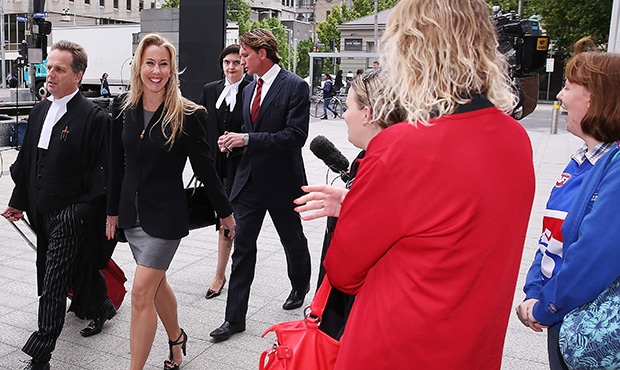ASADA would have been a toothless regulator if it was unable to take advantage of the AFL's power to make Essendon co-operate with a doping investigation, a court has heard.
Essendon coach James Hird claims the Australian Sports Anti-Doping Authority unlawfully recruited the AFL into a joint investigation of the Bombers' 2012 supplements program to override its own lack of powers.
But ASADA barrister Tom Howe QC told the Federal Court its co-operation with the AFL was a conscious and legal decision.
"It obtained that benefit or advantage and it did so advertently," he said.
Mr Howe said the National Anti-Doping (NAD) scheme required the AFL to put in place a robust anti-doping policy.
He acknowledged that ASADA had no coercive powers of its own but said the NAD scheme envisaged the two bodies working together.
He described Hird's argument as an extraordinary proposition, saying that if ASADA could not reap the benefit of the AFL's coercive powers, it would be toothless.
"Were ASADA unauthorised to receive those answers to those questions that the participants themselves agreed they could be directed to answer by the AFL ... it would make ASADA a completely toothless regulator," Mr Howe told the full bench of the court.
Hird's barrister Peter Hanks QC argued ASADA had designed the investigation to suit its own purposes and lead the questioning by illegally harnessing the coercive powers of the AFL.
"ASADA had no power to bring the AFL into the investigation and into the interview room," he said.
"It did so to override its own lack of power."
Justice John Middleton ruled in September that ASADA and the AFL acted lawfully.
After that finding, ASADA reissued doping allegations to 34 current and past Essendon players.
Mr Howe concluded his address to the court on Tuesday by highlighting that Hird was not supported by his club or his players in his appeal of Justice Middleton's ruling.
"They have made it clear that they want to contest the suspected doping rule violations on their merits," Mr Howe said.
Hird said he was happy to have had his day in court.
"We're very happy to have had our chance to put our case forward. We now look forward to the decision and go from there," he said outside court.
Justices Susan Kenny, Tony Besanko and Richard White reserved their decision to be handed down at a later date.






